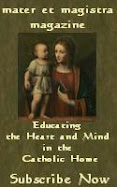How many books within the Bible are considered "wisdom books"? Can you name the "wisdom books" of the Bible? What is one distinguishing characteristic of all these books?
I couldn't name the seven wisdom books nor did I know that they are all written in poetic (as opposed to, prose) form.
I so don't know my Bible! That was one of the reasons I chose the book, Come and See: Wisdom -- Catholic Bible Study for review; I figured I'd be able to answer at least these three questions when I was done with the book.
Well, I can now do that and more! The "wisdom books" are:
- Job
- Psalms
- Proverbs
- Ecclesiastes
- Song of Solomon
- Wisdom
- Sirach.
Fr. Liesen and Dr. Manhardt do a great job of explaining the many facets of these books: the historical setting, the literary devices used throughout, the catechism embedded in the poetry, the Church writings and Magisterial teachings that these seven books have engendered. Each of the 22 chapters are a different part of the scriptures -- a natural/literary coupling of the various chapters or verses of the individual books.
It's amazing how much bang these wisdom books pack!
I liked how Liesen and Manhardt include directed-study questions at the conclusion of each chapter; questions that are objective and great review, that direct the reader to the important or key points of each section of the Biblical passages.
As a homeschooling mom, I see this as a great high school Religion curriculum for 9th grade Scripture or as a 12th grade Theology elective. The coverage in this guide includes
- history by setting each book in it's contemporary setting and explaining the Jewish vs the Christian understanding of the words;
- literature by defining the myriad of literary devices used throughout each of the Biblical books
- catechism by explaining Church teachings on what these scripture passages mean for a Catholic with Papal and Church Father quotations throughout the text
- apologetics by separating the Jewish from the Catholic from the Christian understandings and defending the Catholic interpretation of these sage writings
I do have a couple of quibbles, though:
- The introduction is very abrupt and reads clumsily; the intro gives an overview of how the books came to be in the Bible but it is a very technical, academic discussion. Then all of a sudden the intro explains how to use the book ... the format was ... well, wierd.
- The objective questions at the end of each section are great but the subjective questions (marked with an asterisk) are a bit hokey ... lots about "feelings" and "imagining" that seems forced and more politically correct than it needs to be.
- At times the text is a bit pedantic and technical. There is an assumption of prior knowledge that this particular cradle Catholic (who went to Catholic schools from K-undergrad) didn't quite "get"; I ended up having to do further research a couple of times to understand what they were saying.
This review was written as part of the Catholic book Reviewer program from The Catholic Company. Visit The Catholic Company to find more information on Come and See - Wisdom - Catholic Bible Study.
*-*-*-*



 ...
... 




No comments:
Post a Comment